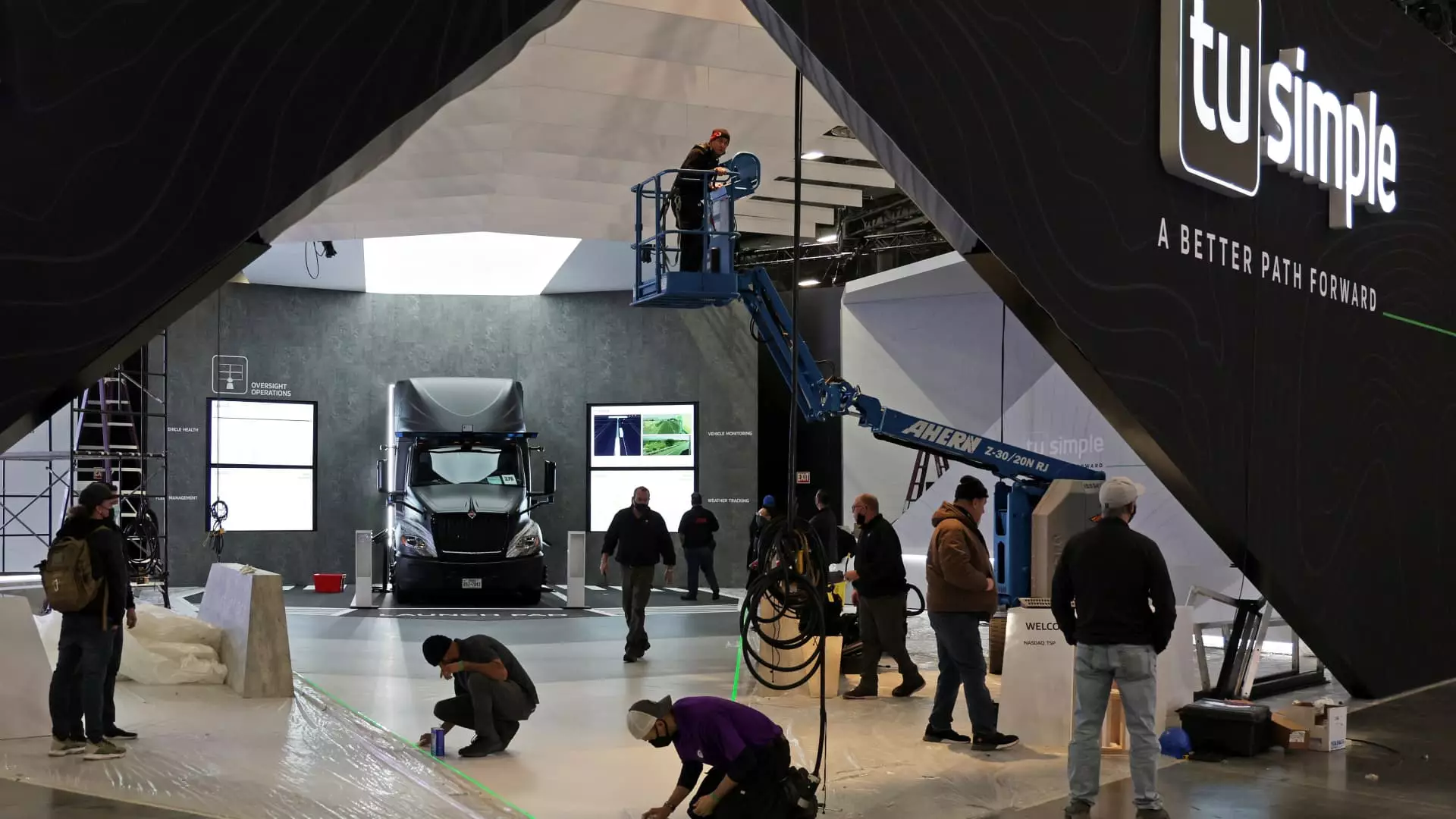In a bold move indicative of a broader pivot within the tech industry, Chinese autonomous trucking company TuSimple has officially rebranded itself as CreateAI. This transition underscores the company’s commitment to exploring new avenues, specifically in the realms of video games and animation—a stark departure from its earlier focus on self-driving technology. The announcement comes at a time of turbulence for the autonomous vehicle sector, highlighted by General Motors’ recent dissolution of its Cruise robotaxi business. As the landscape shifts and underperforming companies filter out, TuSimple’s metamorphosis reveals a desire to capitalize on burgeoning opportunities in the entertainment space, while navigating its existing challenges.
Despite its rebranding, CreateAI does not emerge unscathed from history’s specter. TuSimple’s path has been fraught with obstacles, including safety concerns surrounding their vehicle technology. Moreover, the company faced a hefty $189 million settlement related to a securities fraud lawsuit, leading to its delisting from the Nasdaq earlier this year. Such tribulations demonstrate the precarious nature of tech startups and the unforgiving market landscape. These setbacks emphasize the importance of adaptability—an attitude now epitomized by CEO Cheng Lu, who returned to the company roughly two years ago, determined to chart a new course.
Under Lu’s leadership, the company has set ambitious goals aimed at achieving profitability by 2026, fueled largely by anticipation around a forthcoming video game based on popular martial arts novels by renowned author Jin Yong. This strategic direction is aimed at generating “several hundred million” in revenue by the year 2027 when the full version of the game is expected to launch, suggesting that CreateAI is not afraid to dream big, even when amending its vision.
Prior to this transformative rebranding, TuSimple reported a significant operational loss of $500 million in the first three quarters of 2023 alone, amid a sizeable investment in research and development which stood at $164.4 million during the same period. This financial outlay was largely made in anticipation of their venture into generative AI—an advanced technology that fuels applications similar to OpenAI’s ChatGPT. By leveraging their expertise in autonomous systems, CreateAI aims to carve out a niche within the generative AI sector, which has broad implications for the entertainment industry.
Alongside its rebranding, CreateAI unveiled its inaugural AI model, Ruyi, an open-source platform for visual projects accessible via the Hugging Face hub. Such initiatives are aligned with industry trends aiming to democratize creative processes through artificial intelligence, offering creators tools that can dramatically streamline production workflows and enhance artistic expression.
With the recent rebranding and newfound focus, the company is taking robust steps toward growth. Cheng Lu has indicated plans to expand the workforce significantly to 500 employees by next year, a marked increase from their current headcount of 300. This scaling reflects a commitment to diversification and innovation, suggesting that CreateAI recognizes the need for a multidisciplinary team capable of tackling a variety of challenges in the gaming and animation sectors.
Additionally, the company has partnered with Shanghai Three Body Animation to develop both a feature film and video game based on the highly acclaimed sci-fi series, “The Three-Body Problem.” This partnership signals CreateAI’s intent to solidify its place within a lucrative market while maintaining a focus on high-quality storytelling, a critical component in audience engagement.
Despite the alarm bells ringing around U.S. restrictions on Chinese technology firms, Cheng has downplayed potential impacts on CreateAI, asserting the company leverages a blend of Chinese and foreign cloud computing services to mitigate barriers. This adaptability may enable CreateAI to maintain operational continuity even in challenging geopolitical climates.
The rebranding of CreateAI from TuSimple highlights the company’s resilience and strategic shift toward interactive entertainment, a sector anticipated to see exponential growth in the coming years. Transformations like these are a testament to the evolving nature of technology firms, where the willingness to pivot based on market demands can pave the way for future success and innovation. The road ahead may be fraught with uncertainty, but CreateAI’s ambition and forward-thinking approach could very well position it as a player to watch in the dynamic collision of technology and creativity.

